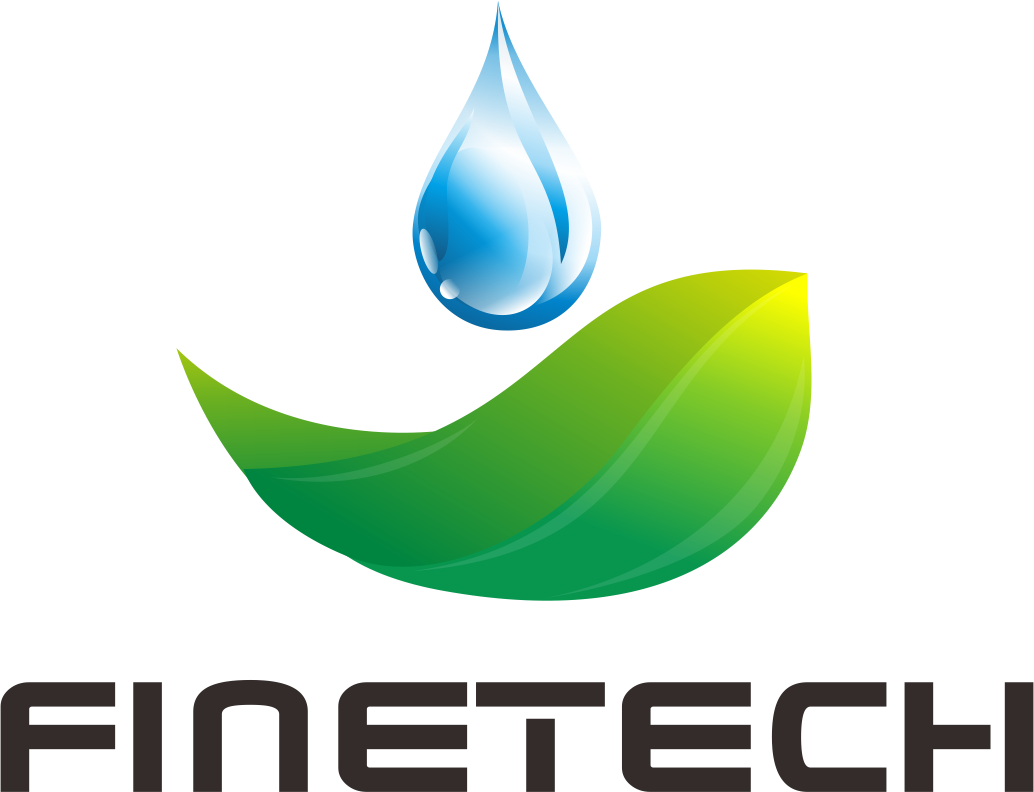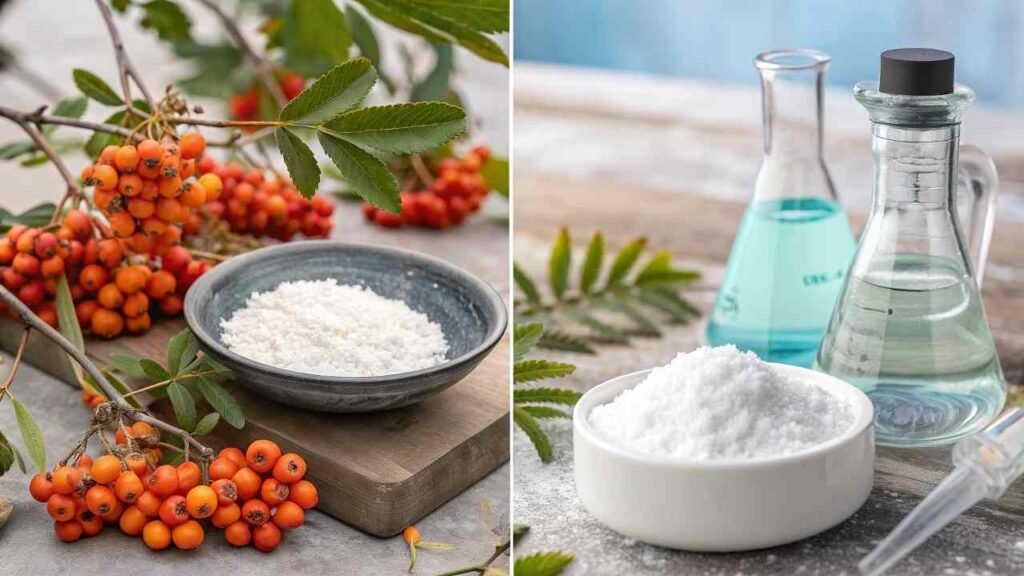Confused if potassium sorbate is natural or man-made? Wondering how this impacts your product choices and consumer appeal? Let's clear up the "natural vs. synthetic" debate for this common preservative.
Potassium sorbate is commercially produced synthetically, though its active component, sorbic acid, occurs naturally. For buyers, this means consistent quality and cost, but it's not for "all-natural" labels.
The "natural" or "synthetic" label can significantly impact market positioning and consumer perception. Let's dive into what this means for potassium sorbate.
What is the origin of sorbic acid, the active component of Potassium Sorbate?
Where does the "sorb" in potassium sorbate come from? Is its active ingredient natural? Let's trace sorbic acid's roots.
Sorbic acid was first found in rowan tree berries (Sorbus aucuparia). This natural origin links it to nature, even though commercial sorbic acid is man-made.
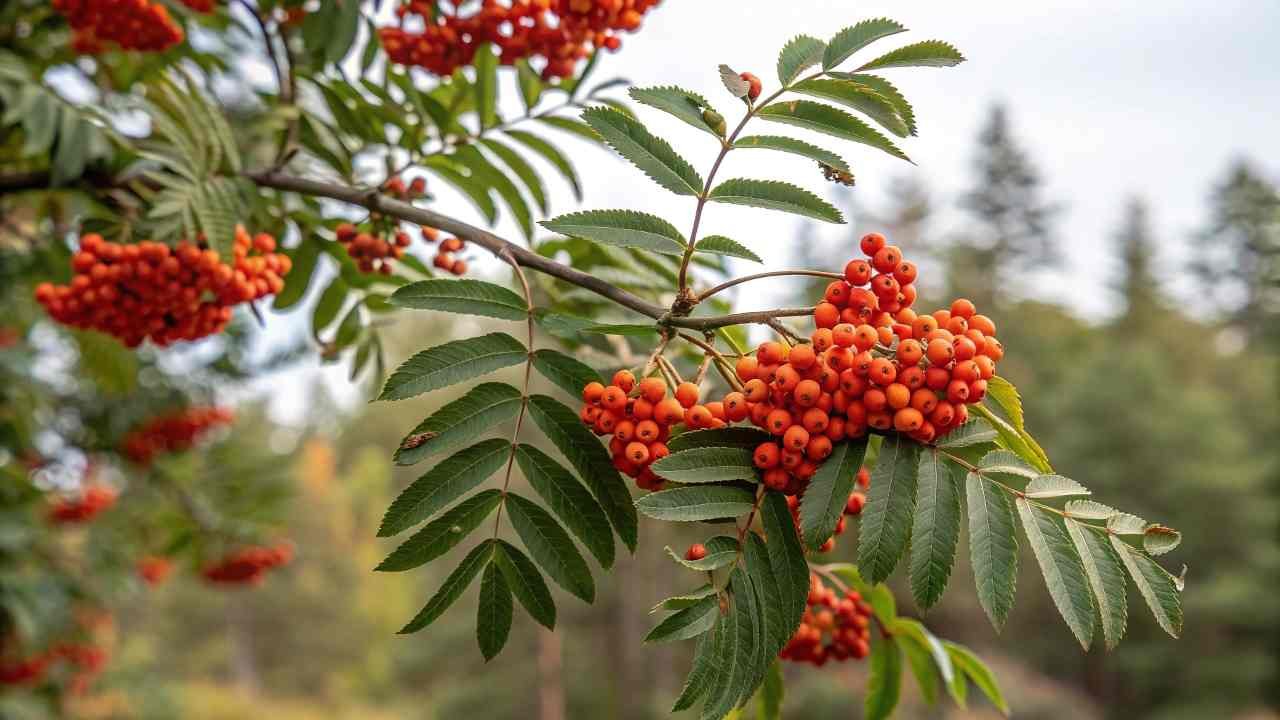
Potassium sorbate's preservative power comes from sorbic acid1. Sorbic acid was first discovered in berries of the rowan tree (Sorbus aucuparia). So, the active molecule itself exists in nature.
When potassium sorbate dissolves (especially in acidic foods), it releases sorbic acid, which stops mold and yeast2. While the idea is natural, extracting it from berries isn't practical for large-scale use.
Natural Link:
| Component | Origin | Role |
|---|---|---|
| Sorbic Acid | From Rowan Tree Berries (initially) | Active antimicrobial |
| Potassium Sorbate | Salt of sorbic acid | Delivers sorbic acid |
How does the commercial production of Potassium Sorbate influence its "natural" perception?
If sorbic acid is from berries, is potassium sorbate natural? How does manufacturing change this view? Let's see how it's made.
Commercial potassium sorbate is made by chemical synthesis, not from berries. This synthetic process means it's not generally seen as "natural" by official or consumer standards.
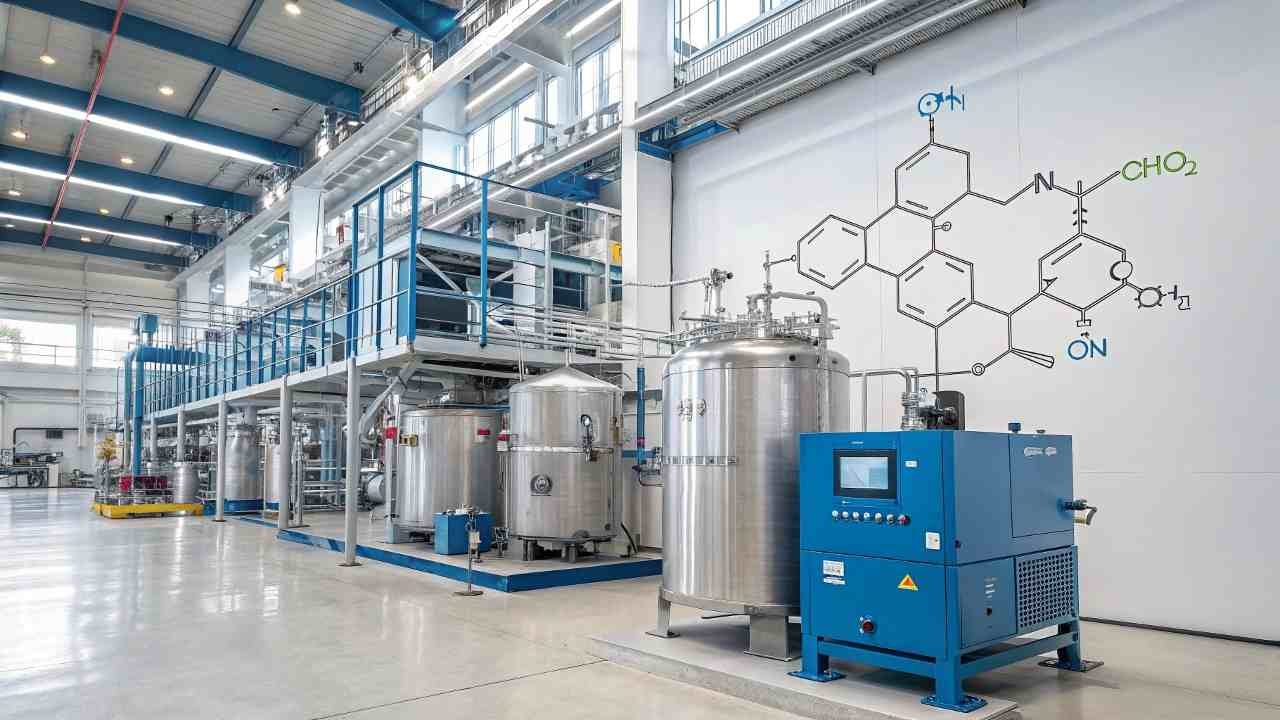
This final potassium sorbate molecule is chemically identical to one made from natural sorbic acid (it's "nature-identical3"). However, "nature-identical" is not "natural" for labeling if the process is synthetic. Most regulators and consumers consider it synthetic. This means it doesn't fit "100% natural" claims.
Production & "Natural" Status:
| Stage | Process Details | "Natural" Implication |
|---|---|---|
| Sorbic Acid | Chemical synthesis | Synthetic |
| Potassium Sorbate | Reacting synthetic acid | Synthetic |
| Final Product | Chemically Produced | Not "Natural" |
How do consumers typically perceive "Potassium Sorbate" on ingredient labels?
What do shoppers think of "potassium sorbate"? A helpful friend or a scary chemical? Let's look at common consumer views.
Consumer views on potassium sorbate vary. Many don't know it. Some see "chemical" negatively, others accept it for food safety and longer shelf life.
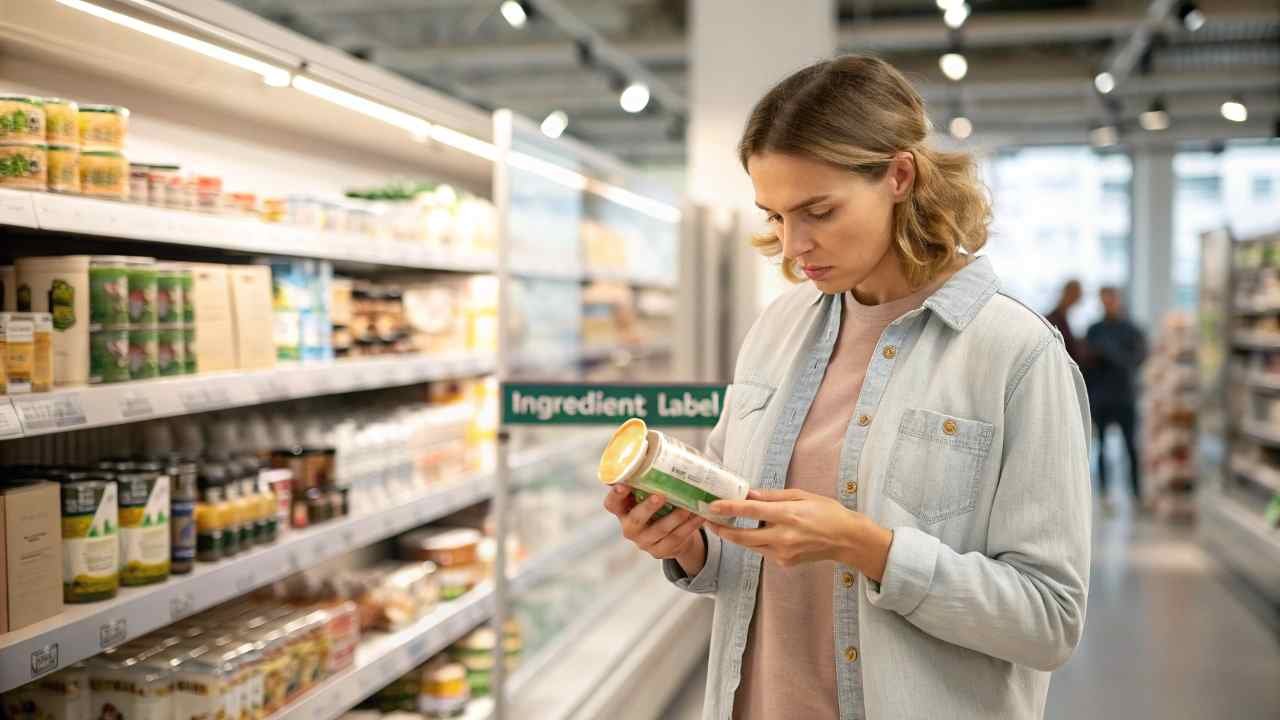
Many consumers don't recognize "potassium sorbate." Some are wary of "chemical-sounding" names, especially if they seek "clean labels4." Others understand preservatives are needed and trust its safety approvals.
Online information and marketing trends heavily influence these views. Clear communication from manufacturers about why it's used and its safety can help. Different cultures also have different acceptance levels.
Consumer Views:
| Factor | Potential Perception |
|---|---|
| Name | Sounds "chemical" to some |
| Familiarity | Lack of it can cause suspicion |
| "Natural" Trend | Makes "synthetic" less appealing for some |
| Trust in Rules | Approval by FDA/EFSA can reassure |
Are there "natural" alternatives to Potassium Sorbate, and how do they compare in efficacy and cost?
Want a "natural" preservative instead of potassium sorbate? What options exist, and how good are they? Let's compare.
"Natural" options like rosemary extract or cultured dextrose exist. But they often work less broadly, can affect taste, and are usually much more expensive than potassium sorbate.
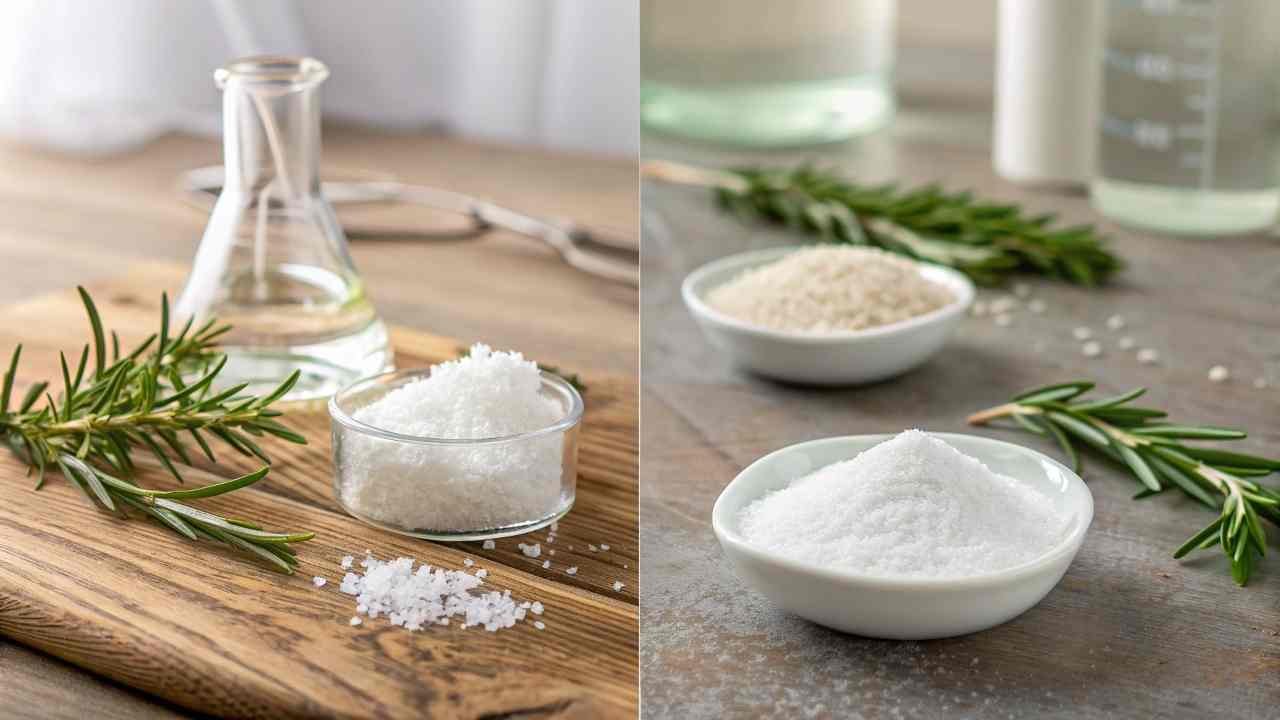
Demand for "clean labels" drives interest in natural preservatives. Examples include plant extracts (rosemary, oregano), cultured products (from fermented sugar/wheat), and natamycin.
Comparison:
- Efficacy: Potassium sorbate is broad against yeast/mold at low doses. Natural options vary; often narrower, may need higher doses. Natamycin is good against fungi but not bacteria.
- Taste: Potassium sorbate has minimal taste impact. Plant extracts often have strong flavors.
- Cost: Potassium sorbate is very cost-effective5. Natural alternatives are almost always much more expensive.
- Labeling: Potassium sorbate is "potassium sorbate." Naturals allow "rosemary extract," etc.
K-Sorbate vs. Natural Alternatives:
| Feature | Potassium Sorbate | Natural Alternatives (General) |
|---|---|---|
| Origin | Synthetic | Plant/Fermentation Derived |
| Efficacy | Good, Broad | Varies, often narrower |
| Cost | Low | High - Very High |
| Flavor | Minimal | Often Significant |
| Labeling | "Potassium Sorbate" | "Rosemary Extract", etc. |
Practical challenges often make potassium sorbate the preferred choice.
Does the "synthetic" nature of Potassium Sorbate affect its safety or regulatory approval?
If potassium sorbate is lab-made, is it less safe? Does this change how governments view it? Let's look at safety and approvals.
No, being synthetic doesn't make potassium sorbate less safe. Its safety is well-proven by extensive tests, and it's approved by major global regulatory bodies like FDA and EFSA.
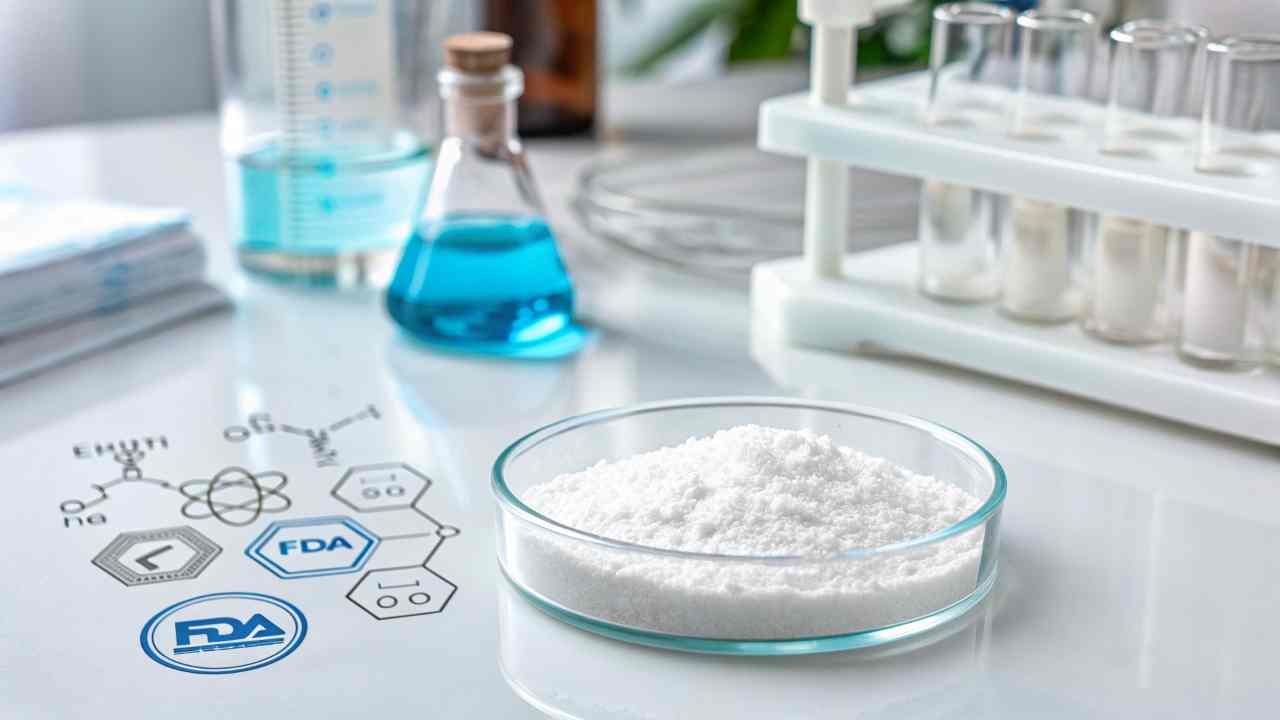
"Synthetic" does not mean "unsafe." Safety is based on science, not origin. Potassium sorbate has been thoroughly studied for decades.
Key Safety Points:
- Metabolism: Body breaks it down like fatty acids; doesn't build up.
- Toxicity: Very low toxicity. Not carcinogenic.
- ADI: Safe daily intake level established (0-25 mg/kg body weight as sorbic acid). Most people consume far less.
- Global Approval6: GRAS in US, E202 in EU, widely approved elsewhere. This is important for FINETECH's exports.
- Purity: Synthetic production allows high, consistent purity.
Synthetic origin does not compromise its safety or regulatory status. It's a trusted preservative due to proven safety and performance.
Safety Summary:
| Aspect | Potassium Sorbate Detail | Implication for Buyers |
|---|---|---|
| Origin | Synthetic (active part nature-identical) | Does not dictate safety |
| Safety Tests | Extensively studied | Well-understood safety profile |
| Approval | FDA GRAS, EU E202, Global | Trusted, permitted worldwide |
| Purity | High & Consistent via synthesis | Reliable quality |
Conclusion
Potassium sorbate is synthetic, but its active part, sorbic acid, is natural. This means consistent quality and cost for buyers, though not for "all-natural" claims. Its safety is well-established.
-
Explore this link to understand the properties and applications of sorbic acid in food preservation, enhancing your knowledge on natural preservatives. ↩
-
Learn how sorbic acid effectively combats mold and yeast, ensuring food quality and safety for consumers. ↩
-
Exploring the concept of 'nature-identical' can help consumers make informed choices about food labeling and ingredients. ↩
-
Exploring clean labels can enhance your knowledge of food transparency and consumer preferences. ↩
-
Exploring the cost-effectiveness of potassium sorbate can provide insights into its widespread use in the food industry. ↩
-
Discover the implications of GRAS and E202 designations for food additives and their importance in global trade and safety. ↩
